4-Day Work Week: The Complete Overview

The 40-hour work week is so ingrained in office culture that most business leaders don’t even think about it. But maybe you should.
Henry Ford developed the 40-hour, five-day workweek nearly 100 years ago. And it would be an understatement to say that business — and the way we do business — has changed since then. The 40-hour week may still be right for your business (you’d know better than me), but it’s worth considering why you work that schedule. Did you choose it as the preferred template or did it simply take shape that way since everyone else does it?
If your company’s work schedule was backed into rather than selected, consider alternatives. The fully remote marketing agency I run, Nectafy, has done a four-day work week since 2020. We took a few months to think it through, and we ultimately went for it.
I’ve written about the four-day work week from many angles, so this article will serve as the hub for all of those pieces. You’ll find advice on implementing a 4-day workweek, the benefits to the employee and employer, and four-day schedules try. Then, you’ll see some companies and countries that are using or trialing the four-day week.
First, the four-day work week defined
- Four days of work (Monday – Thursday, for example) and three days of no work
- 32 hours per week (standard eight per day)
- Same pay as before
Looking for a 4-day work week job?
Take a look at Flexjobs, the world’s biggest job board dedicated to remote and flexible work. You’ll find dedicated filters to “flexible” and “alternative” schedules.
Search for 4-day work week jobs on Flexjobs.
How to implement the four-day work week
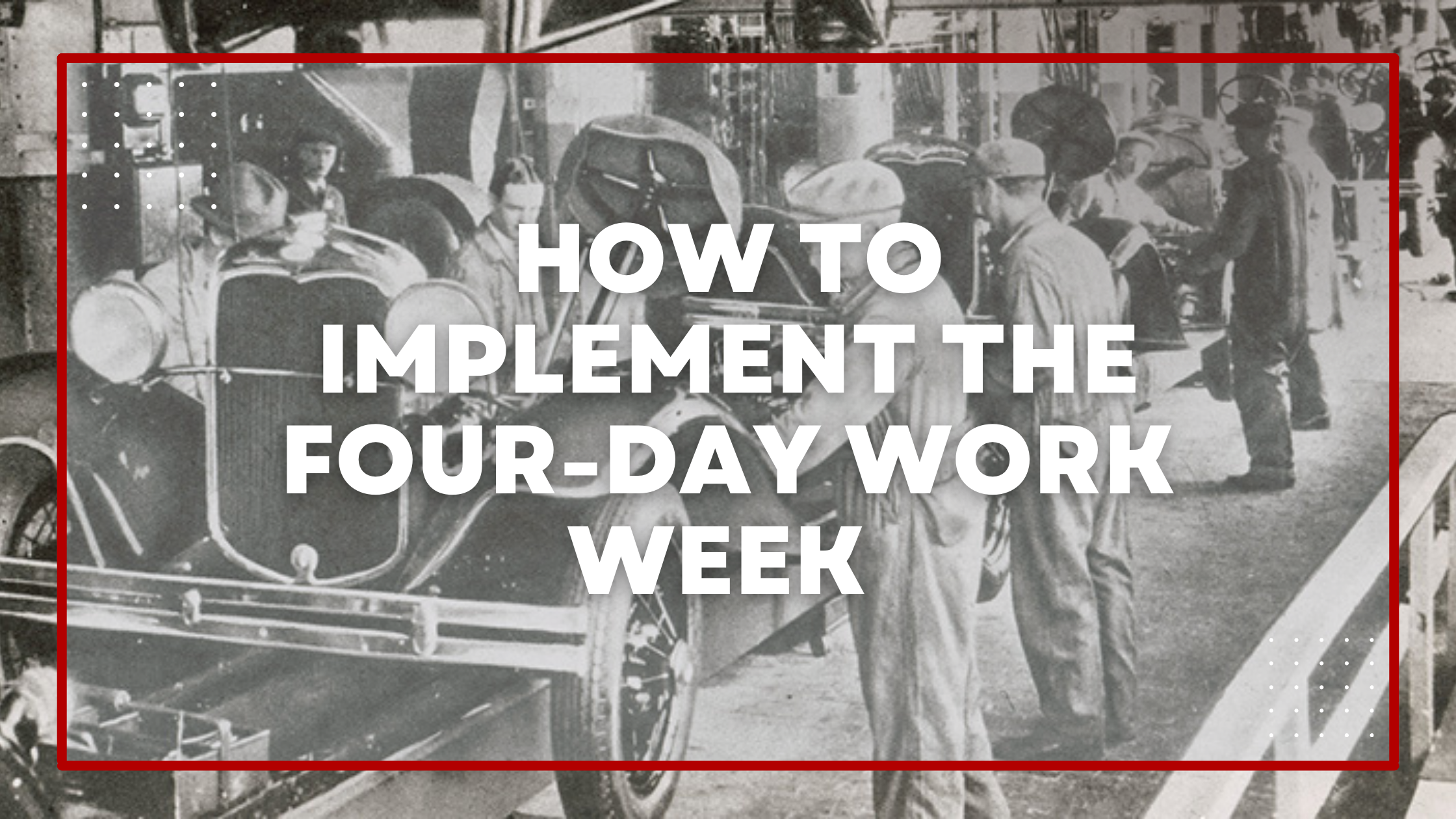
There are practical steps you can take to make a four-day workweek happen. Here’s a quick summary of how we approached it at Nectafy:
- Don’t do it as a trial. A trial will likely give you skewed results. Picture telling your team this: “No one has to work on Fridays anymore for six months. You’ll receive the same pay. If we can maintain our productivity, we’ll adopt this policy permanently.” Do you think they’ll become more productive? If it failed, how do you tell your team?
- Implement the four-day workweek in stages. If you’re worried about jumping straight to the four-day, 32-hour work week, you can take permanent steps toward it. Implement an optional 4-10, 9-80 or a seasonal 4-day work week. When you feel comfortable at that step, go for the full four-day week next.
- Create an accountability chart. An organizational chart shows titles and who reports to whom. An accountability chart lists key responsibilities for each role at the company. Each responsibility should be owned by one person and clearly defined. This sets you up to switch management from hours worked to output and value. The accountability comes from this book, Traction: Get A Grip On Your Business, which I highly recommend.
- Document processes. We waste a lot of time doing the same things over and over, or reinventing the wheel for repeatable tasks. To cut down on time wasted, make a process manual for your entire team to access and update. Each repeatable action at the company should be listed there with steps.
- Question the purpose of your meetings. We cut each meeting in half (weekly to bi-weekly, one hour to thirty minutes, etc.) If you can find ways to cut meeting times without hurting your business, it helps with the transition to a four-day work week.
- Reverse communication expectations. Instant communication slows everything down. Let the team know that immediate responses on Slack and email aren’t necessary, and that disconnecting is strongly encouraged during time off. It’ll change your culture from “being at your desk” to “getting valuable things done.”
- Create a policy for part-time. When all of your full-time employees switch from 40 hours to 32 per week for the same pay, should you make a change to your part-time policies? We didn’t, but you may want to.
| Read the full chapter: How We Implemented The Four-Day Work Week, Step By Step |
Benefits of the four-day work week

Since 2020, I’ve experienced the benefits of the four-day work week as an individual and for the company.
For the individual (employee):
- Mathematical work-life balance (as in 50/50)
- Increase in happiness
- Fewer meetings
- More appreciation for the company and work
- More paid time off (PTO) days
See all 12 benefits for the individual.
For the company (employer):
- Unique benefit to attract talent
- Employees will recommend your company as a good place to work
- More productive workforce, potentially
- Happier employees with less burnout
- More automation, less busy work
See all 10 benefits for the company.
| Read the full chapter: 22 Four-Day Work Week Benefits I’ve Experience |
Four-day work week schedule options

If you’re looking to create more free time for yourself and your employees, there are several scheduling patterns you can consider (even beyond a four-day schedule).
Here are the most commonly used four-day work schedules to choose from:

A company considers only four days of the week as work days. In most cases, four-day companies don’t work Friday to give a three-day weekend.
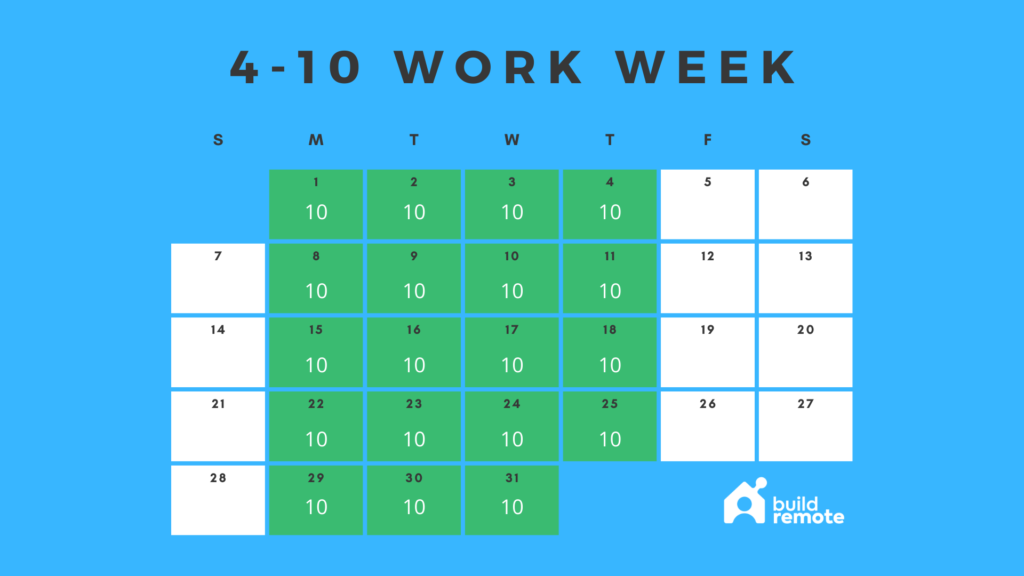
An employee works for four, 10-hour days then is off for three days each week.
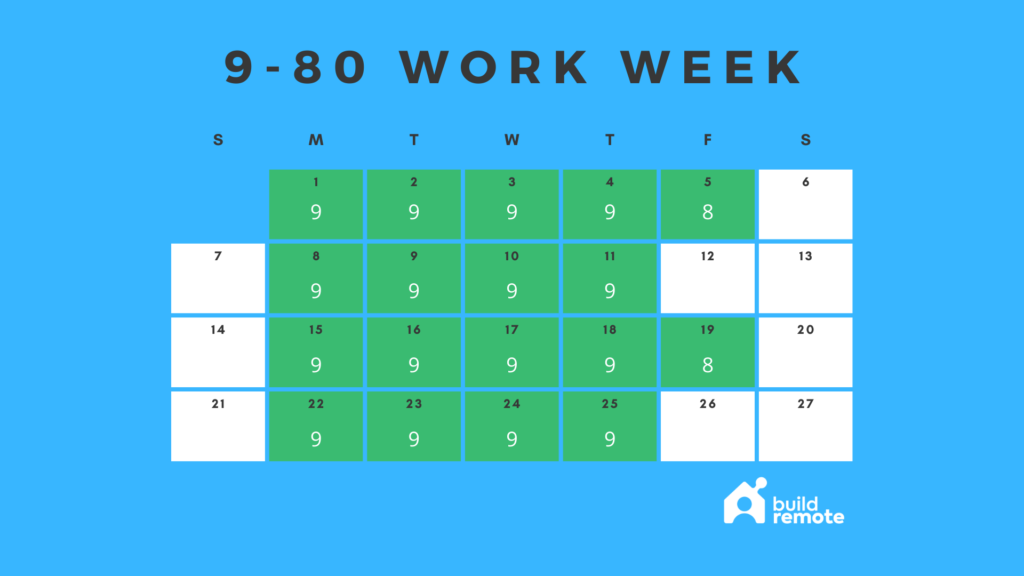
During a two-week period, employees work 80 hours across nine days instead of ten.
Seasonal 4-day (Summer Fridays)

During the summer months only, a company will offer some form of Fridays off. It’s a seasonal change to the work schedule.
| Read the full chapter: 29 Alternative & Compressed Work Week Schedules |
Companies using the four-day work week
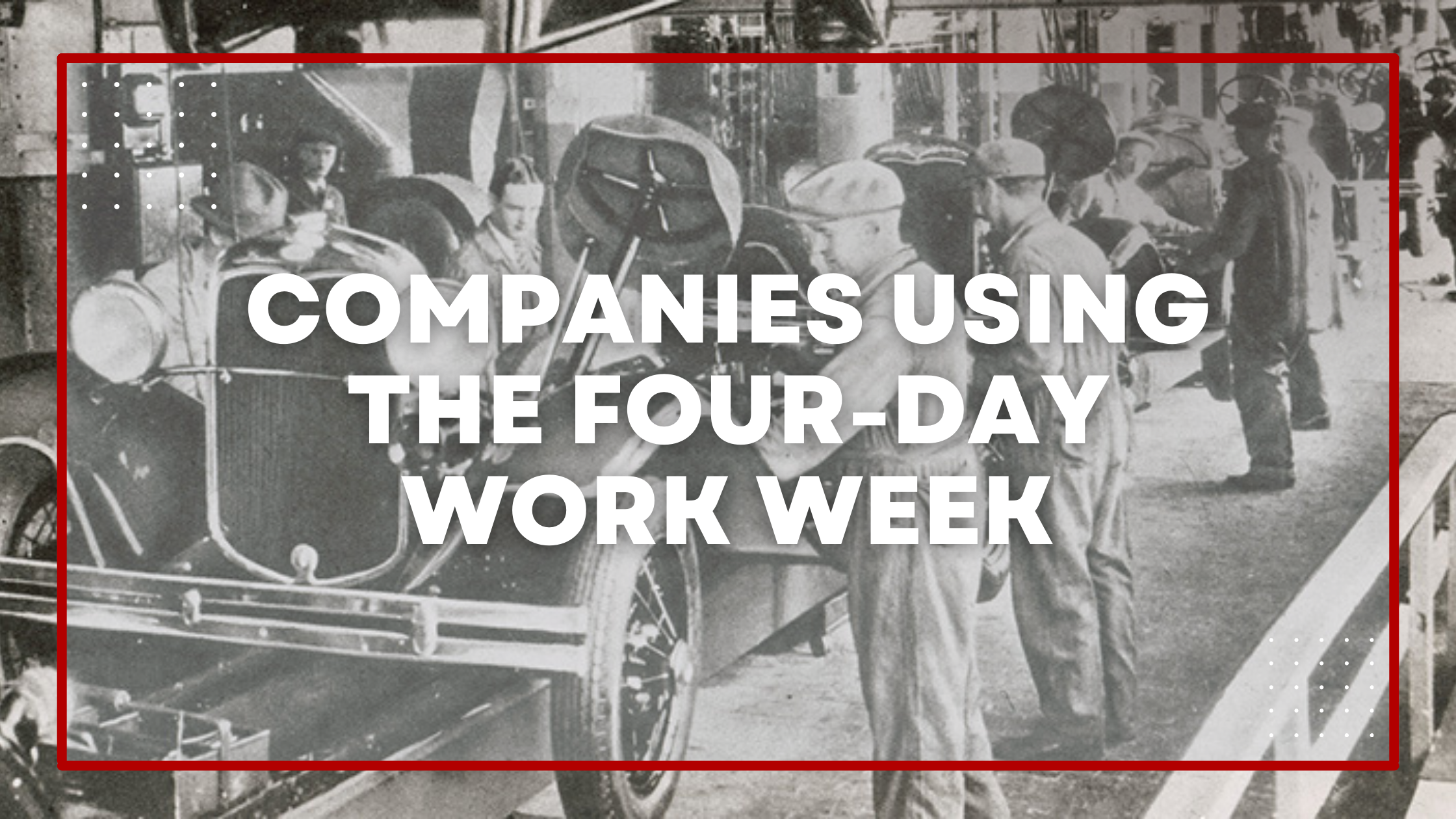
A significant number of companies have adopted a four-day work week, and you hear about new ones each week. These companies are either trialing the schedule now or have adopted it permanently. Here are some notable companies from the list:
- Microsoft Japan
- Toshiba
- Shake Shack
- Shopify
- Unilever (New Zealand)
- Kickstarter
- Panasonic
| Read the full chapter: Every Company Doing A 4-Day Work Week |
Countries using the four-day work week
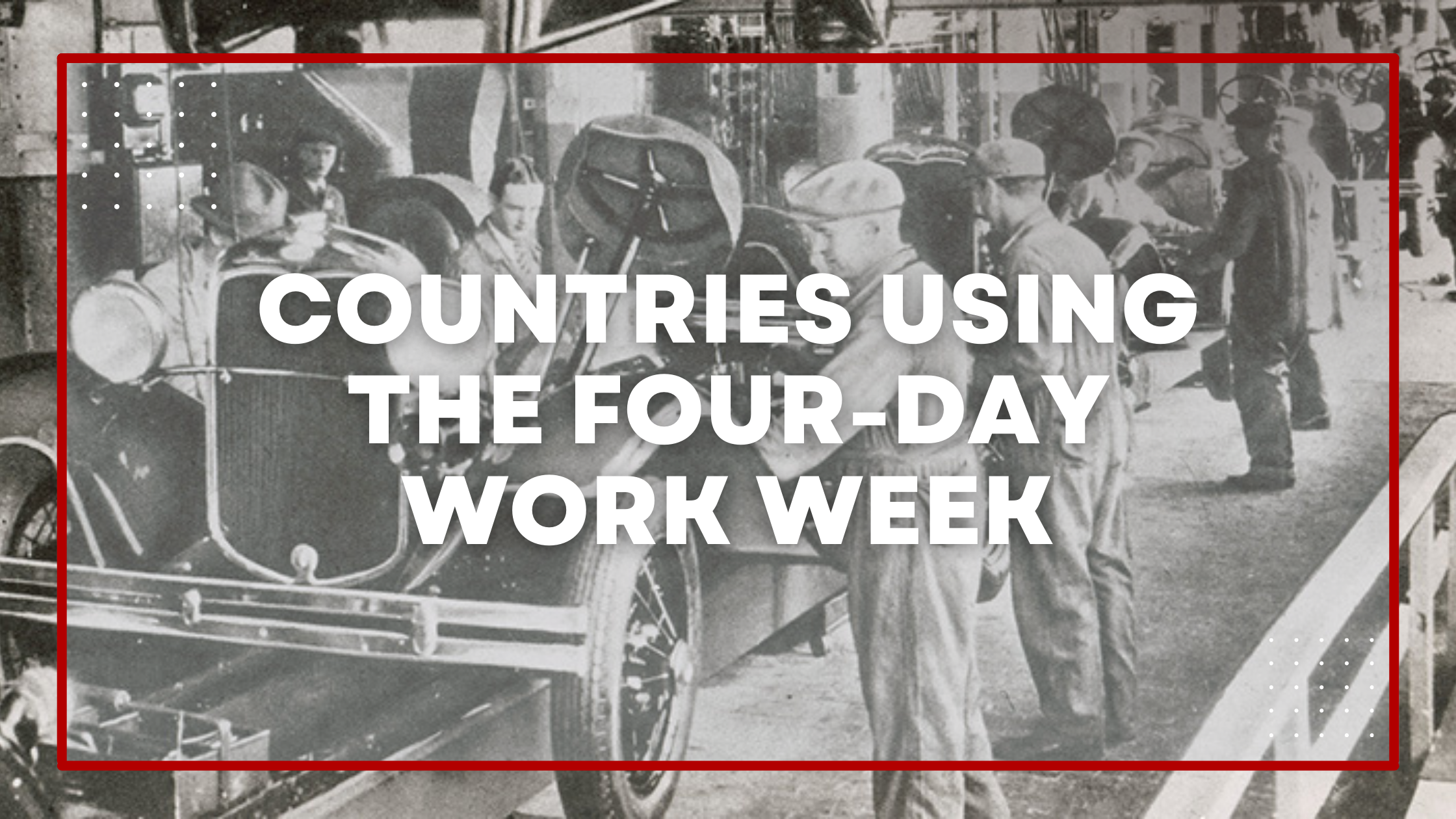
In some cases, the change isn’t just happening at the business level. Governments around the world have seen the possibilities in a three-day weekend too, and they’re working on legislation that helps companies implement four-day schedules.
Here are some notable countries either trialing or operating on a four-day work week schedule:
| Read the full chapter: Every County Doing A 4-Day Work Week | Every 4-Day Work Week Bill |
Examining the 4-day work week trials around the world
In this video with Dr. Dale Whelehan, CEO of 4 Day Week Global, we cover everything from the lack of sleep on work, how and why we work the 40-hour week, and how to go about switching to a four-day work week.
View takeaways from the video here.
Hiring on a four-day work week

When we first started offering the four-day work week at Nectafy, I was hesitant to include it as a benefit on our job postings. I thought, “What if we attract people who don’t want to work hard?”
But I was wrong. We have good processes to hire the right people (after lots of failure of course), so we can screen out people who are applying only for the short work week. Once we added the benefit, we saw our applications increase which put us in front of more qualified candidates.
If you trust your process for screening and hiring, then feature your four-day work week as a company benefit. You’ll be able to stand out on job boards and hire quality talent.
If you’d like to get in front of some more specific groups of applicants, we recommend posting your job to these two sites:
- Flexjobs: The world’s biggest job board dedicated to flexible, alternative schedule, and remote jobs
- 4dayweek.io: A targeted job board for remote, 4-day work week jobs only – with 6,000+ email subscribers (and counting)
We hope you find this article useful. Just so you know, Buildremote may collect a small share of sales from the links on this page to help keep this site running.
